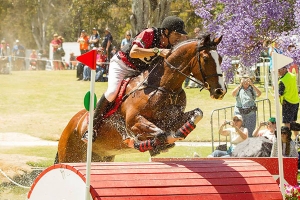Soil under our nails
CarbonLink™ is revolutionising carbon farming in Australia. Our unique and efficient end-to-end data-driven approach simplifies the process of becoming a carbon farmer, giving you more time to focus on what you do best.
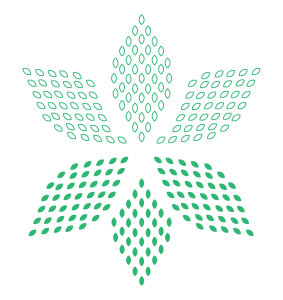
Since the early days, CarbonLink™ has been the leader in the soil carbon industry delivering innovation, advanced technology, streamlined processes and unmatched client service. We have a large Australian based team including scientists, mapping experts, agricultural and carbon specialists and project managers.
Our expertise is your peace of mind. From your very first interaction with our team you will benefit from our end-to-end approach.
This means regardless of the soil carbon project complexity, our team will lead you through the complete process including identifying opportunities on your land for soil carbon capture, project registration, delivery, reporting, ongoing compliance and claiming of Australian Carbon Credit Units (ACCUs) through the Emissions Reduction Fund (ERF).
In 2022, we expanded our team and our soil carbon farming solutions. Our clients can experience the CarbonLink™ Advantage through our NetCarbon™ Producer Program. Learn more about how this works.
Your local expert team. Meet the people who make your soil carbon project happen.
Together, We’re making good ground™
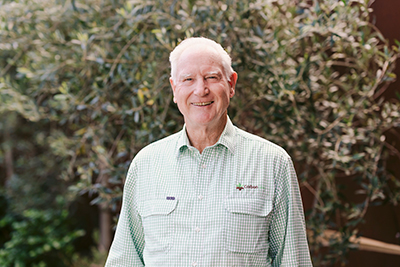
Learn More
Terry is an internationally acclaimed educator and has worked in research, extension and property management in both government and private sectors for almost 55 years. Terry founded Carbon Link in 2007 with the vision of helping farmers to get paid for improving their soil.
Terry is widely recognised as an industry pioneer and is also the Founding Director of RCS Australia who are widely regarded as one of the leading regenerative agriculture training and advisory groups on the planet.
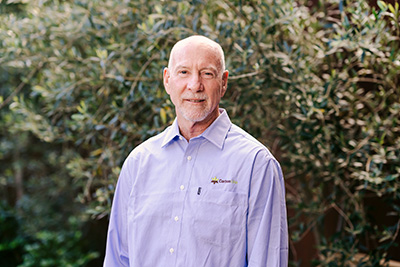
Learn More
Bob is an experienced business leader with a multi-disciplinary skill set spanning operational and strategic responsibilities. He is passionate about helping farmers maximise their property’s potential and executes this through his leadership role at CarbonLink™, overseeing the rapid purposeful growth of the soil carbon farming brand in the Australian market.
As well as being successful in business, Bob is a philanthropist and a highly regarded community leader, supporting and sponsoring many local community organisations, events, and initiatives, as well as holding various board & committee positions within the community.
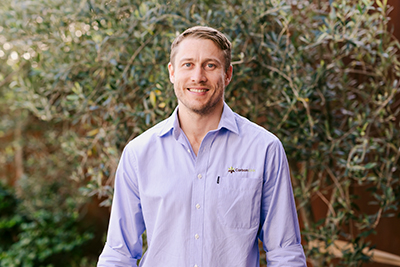
Learn More
Chris leads business operations at CarbonLink and is responsible for our overall project, fieldwork, and laboratory operations. Chris has extensive experience in the application of ERF Soil Carbon methodologies, as well as a diverse range of experience in business, project management, contracting, and soil testing.
Chris has led development of CarbonLink’s commercial capabilities and is driven by the business mission to regenerate agricultural landscapes.
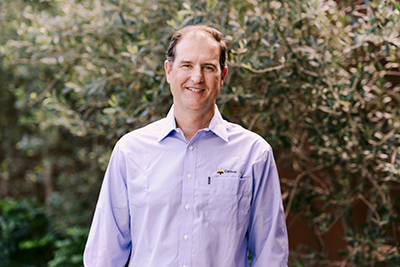
Learn More
Andrew has over 30 years working across agriculture and finance. He has extensive experience in asset management and investment with a focus of agriculture.
Prior to starting as CarbonLink CEO, Andrew was the founding CEO for FutureFeed Pty Ltd, a company established by CSIRO to commercialise the Asparagopsis seaweed technology which when fed to ruminant livestock reduces methane emissions. He is a member of the Ag Food Fund which invests in listed and private agriculture businesses in Australia.
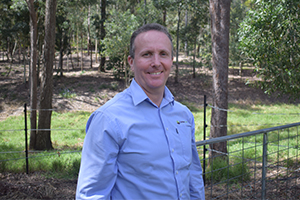
Learn More
Chris is a senior strategy, marketing and communications expert with over 20 years experience working with start-ups and scalers including CSIRO spinouts and companies focused on serving primary producers.
He graduated with Distinction in the top 2% of his MBA. The triple university academic award winner collaborates with team members to develop core competencies leading to a sustainable competitive advantage.
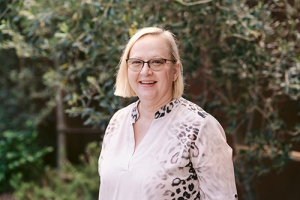
Learn More
Karen has a wide and varied industry and business experience in both private and public sectors. Before joining the Carbon Link team in May 21 Karen returned to Gladstone from WA to be closer to her growing family. Excellent at establishing rapport with all stakeholders, Karen holds a strong commitment to producing quality outcomes and is our go to person in relation to all Carbon Link administration and general account related matters.
Karen holds a Diploma of Management which she completed in 2010. Her hobbies include gardening and travel.
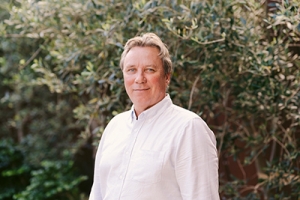
Learn More
Matz has worked as an IT Professional in Australia and overseas over the last 20+ years in roles ranging from leading technical teams developing desktop and web-based software applications through to hands-on software development and system admin on a range of platforms, mobile frameworks, IoT technologies, Linux system administration and cloud platform DevOps. Currently managing the software development for CarbonLink.
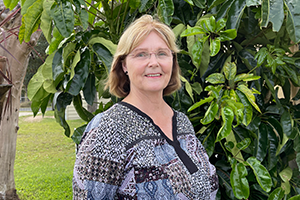
Learn More
Through her work as an Electronic Engineer, Fenella Persson has travelled the world and acquired extraordinary skill sets, knowledge and experience. Born in England and raised in Uganda from the age of two, Fenella was fortunate enough to receive an education enriched by having classmates from very different backgrounds and cultures from her own. This experience broadened her perspective about the possibilities in life and led her back to England where she completed her Bachelor of Science in Electrical and Electronic Engineering.
In her subsequent travels, she met a Swedish engineer in China whom she later married. In 1988, with their 14 month old son, the couple immigrated to Australia. After founding and operating her own business in Cairns for 12 years, Fenella sought new challenges, leading her into change management positions and, ultimately, to CarbonLink™ where she enjoys being part of the growing carbon farming industry.
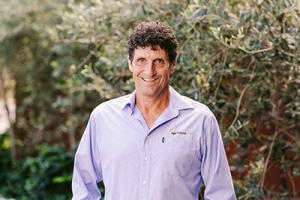
Learn More
With a background implementing controlled grazing systems on his family property in Qld over a 25-year period, which proved to be productive and profitable while continuously improving the health of the landscape we operated on, is something Stephen is proud of.
Seeing the devastating impact many commonly used agricultural practises had on the landscape during the last drought was enough to have him knock on CarbonLink’s door, firmly believing carbon farming can be the catalyst to broad scale practise change, creating healthier and happier producers, consumers, and environments. Stephen enjoys family, friends & the equestrian pursuits of show jumping and eventing.
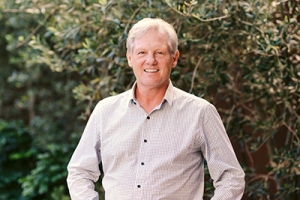
Learn More
Charlie has extensive experience developing carbon abatement projects, including the first Australian Carbon Credits Units (ACCUs) generated from reducing emissions intensity in cattle. Prior to this Charlie supported agroforestry and carbon projects with the CSIRO. He is passionate about increased participation in carbon farming to improve primary productivity, profitability and resistance to drought.
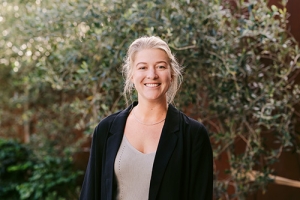
Learn More
Zoe is an environmental scientist with a wide range of experience in soil assessment, environmental monitoring, and remediation.
Prior to working for CarbonLink, Zoe gained experience in approvals, compliance, and development of post-mine land use plans, with hands on experience assessing soil suitability, and revegetating landscapes. In her current role, Zoe focusses on project delivery, data analysis, and soil carbon results reporting. She is driven by the potential of regenerative environmental management in Australian landscapes, and looks forward to producing good outcomes for clients and country while contributing to Australia’s net zero targets.
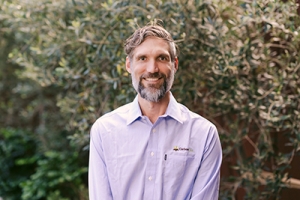
Learn More
Originally hailing from the Darling Downs, Corey has been working in the environmental and sustainability space for over 5 years. This direction followed on from his time in the Australian Defence Force, where he got a strong operational and engineering background working as a marine technician. He sees the carbon industry as an important driving force to improve country and productivity, while playing our part in reducing global greenhouse gas levels.
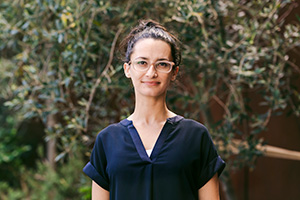
Learn More
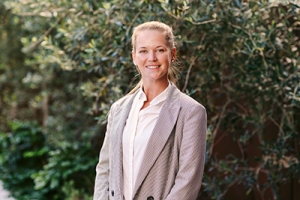
Learn More
Originally from Ingham, Sarah first discovered her passion for agriculture in the cane industry. After completing her initial studies, Sarah later returned to North Queensland to market and price sugar. After relocating further south she continued to broaden her skills and industry knowledge, by working with various sectors in the agricultural industry as a commodity trader. She further refined her commercial acumen working as a business development officer, where she started honing her interests in commercial law, business systems, and the practical application of contracts relevant to agriculture.
Sarah now works for CarbonLink in the role of Commercial Officer, combining her sound analytical ability, practical understanding and commercial knowledge to assist with contract administration.
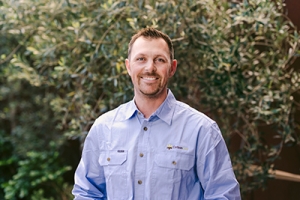
Learn More
Sam holds a Bachelor of Science in Rangeland Management from Texas A&M University and has over 8 years of operational and project experience from the United States & Australia. Sam will be coordinating field sampling activities while also assisting with the expansion of CarbonLink’s drilling capacity. He views the carbon industry as a key avenue to repair country at scale. In his spare time, Sam enjoys working on his 1959 Chevrolet Truck and getting out into the bush.
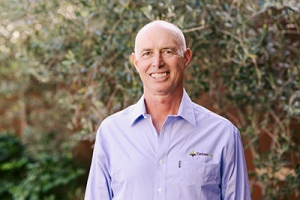
Learn More
Ian (Tas) Loane works as a Carbon Farming Advisor, leading the Project Planning Team. He has worked in on-farm and off-farm agribusiness grazing and cropping management across the eastern states of Australia. Tas is an early graduate of the RCS Australia Grazing for Profit program and has in depth experience managing large-scale, high-density cattle production systems.
In his current role, Tas enjoys communicating with people across Australia and educating producers with the requirements of establishing a soil carbon project and seeing producers lift the productive health of their farms.
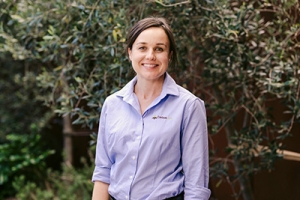
Learn More
Stevie is committed to creating positive change in the Australian Agricultural industry and is an advocate for building soil health, resilient landscapes, and healthy food systems. Stevie has worked across multiple areas in the livestock industry in Australia, the United States, South America and Asia.
Stevie has a bachelor’s degree in Animal Science from the University of Queensland, is an animal nutritionist and functional nutritionist. With a thorough understanding of soil carbon projects, Stevie works directly with primary producers to develop successful carbon farming projects under the Australian Government’s Emission Reduction Fund.
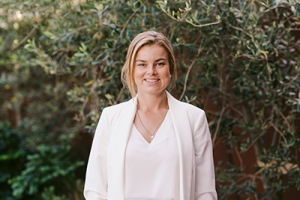
Learn More

Learn More
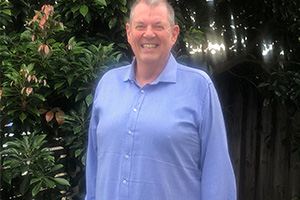
Learn More
Ian has over 25 years experience working in senior roles across numerous sectors including agribusiness. He has extensive experience in environmental & conservation management, new start up, innovation & commercialisation, business, people & asset management.
Prior to starting with CarbonLink, Ian was Business Manager at Marel Cedar Creek, a subsidiary company of Marel hf. That subsidiary is involved in traceability software & food processing hardware manufacturing, including harsh environment computers, automation, weigh/label conveyors and objective vision systems. He is a UQ Alumni and Member of the Institute of Chartered Accountants.
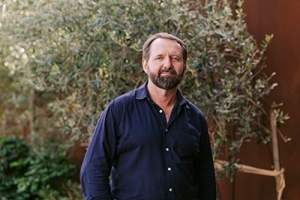
Learn More
Mick has more than 30 years’ experience working in Spatial Analysis, Remote Sensing, Data Management, and Marine Biology. After completing a Bachelor of Science at James Cook University in 1990, (Geography and Zoology majors) with Honours in 1991 (Landscape Ecology/GIS/Remote Sensing), he worked in both the private and public sectors for organisations such as CSIRO, GBRMPA, Qld EPA, CSR Sugar and as a freelance consultant.
He is passionate about sustainable agriculture, healthy oceans, holds a commercial scuba license, and is involved in the arts as an actor, musician, and writer.
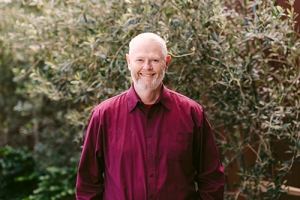
Learn More
David is a geologist with a PhD studying volcanic stratification in New Zealand and an BSc Honours in soil science. After 5 years of soil survey field work in country Queensland, he began work as an environmental scientist with the Regional NRM group for Southeast Queensland. His 20 years’ experience with Geographical Information Systems (GIS), background in soils and landscape analysis, and a strong interest in climate change mitigation is a perfect fit with CarbonLink.
His major role is investigating the delineation of Carbon Estimation Areas to deliver the best long-term outcomes for the landholder, along with map creation and other GIS digitising requirements.
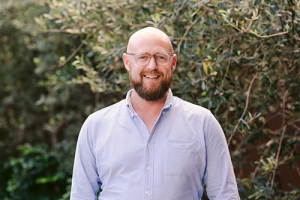
Learn More
Scott has completed a Bachelor of Urban and Regional Town Planning at the University of Queensland. Since then, he has over 10 years’ experience delivering approvals, environmental and property advice and spatial services in the renewable energy sector for both state government and private industry.
He has a wide range of experience in environmental studies, cultural heritage, native title, property management, mapping and surveying. Scott works as an analyst in the CarbonLink mapping team, where he can indulge his passions for cartography, land use, sustainability, and maps.
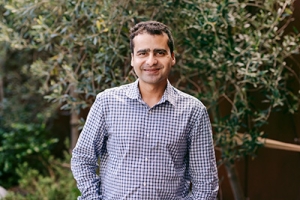
Learn More
Dr. Sushil Lamichhane. Sushil has a decade long experience working with geospatial data in different aspects of agriculture and natural resources. He did his BSc in Agriculture from Tribhuvan University, Nepal; MSc in Applied GIS from Kingston University, UK and PhD in Digital Mapping of Soil Organic Carbon (SOC) from the University of New England, Australia. His special interests include digital soil mapping, remote sensing, geostatistics, machine learning, soil survey, soil mapping, R and Python.
His current research focus at CarbonLink is to improve the prediction of SOC stocks using various environmental covariates in the rangelands of Australia so that the cost of sampling soils could be minimised and the variance of measured carbon be reduced so as to have a maximum possible creditable change in the SOC stocks.
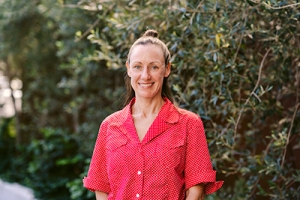
Learn More
Dr Zeppel has over two decades experience in measuring and modelling soil, vegetation, water and carbon fluxes. She won the 2022 ’Women in AI: Agribusiness” award, as well as Scopus Sustainable Researcher of the Year in 2019. She has over 60 peer-reviewed publications, and over $1.9 million in soil-vegetation grants, and worked in academia and industry, in statistics, data analytics and data science, and is now working on data science for soil carbon projects.
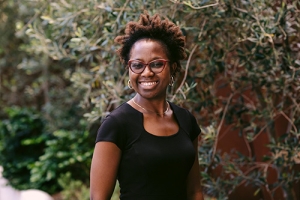
Learn More
Andree Nenkam is a mathematician by training with over 5 years of experience in crop modelling in Sub-Saharan Africa where she has contributed to multiple projects lead by the International Crop Research Institute for the Semi-Arid Tropics (ICRISAT). She is currently doing her PhD in digital soil mapping and application to crop modelling. She works at Carbon Link as research assistant and find it amazing to apply her soil modelling research into industry and to contribute to the mitigation of climate change while improving soil health.
She is a fan of statistics, loves computer programming, enjoys reading and dancing. She aspires to promote awareness of the importance of soil and its sustainable management as a finite resource, and dreams to contribute to the development of Africa. Her moto is “Never Never Give Up”.
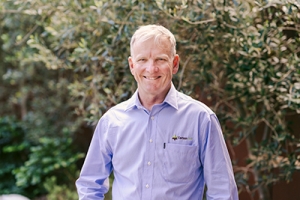
Learn More
Robert has worked in both government and private industry in soil science, GIS and IT related fields over the last 40 years (including founding a successful agricultural software business for 25 years). He is excited to be heading up such a talented group of scientists in the Research and Development team to build the systems necessary to measure soil carbon accurately and cost effectively.
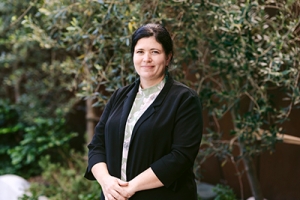
Learn More
Julie-Ann embarked on her environmental science journey at James Cook University and later completed her PhD at Central Queensland University. Being a generalist researcher with a wide range of interests. She is currently immersed in the exciting field of soil organic carbon and soil carbon sequestration as a method to mitigate climate change. Her previous work focused on utilising precision agriculture to improve and protect river health and instream water quality.
With a wide range of experience in freshwater macro invertebrate identification, riparian restoration, terrestrial invasive plant identification, fish- and- mangrove habitat diversity, and laboratory analytical skills, she bridges the gap between environment and agricultural disciplines
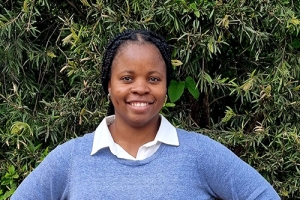
Learn More
Chioma started her soil nutrient and environmental management journey from University of Nigeria Nsukka through to Massey University New Zealand, and later completed her PhD at Western Sydney University. As a soil scientist with interest in climate adaptation of agricultural systems through soil nutrient management and biogeochemical cycling, she is currently immersed in the exciting field of soil organic carbon accounting, and soil carbon sequestration as a method to mitigate climate change. Her previous work focused on managing drought impacted pasture systems using bio-stimulants and arbuscular mycorrhizal fungi.
With an extensive experience in soil nutrient (fertiliser, bio-fertiliser, and bio-stimulants) management, carbon, nitrogen and phosphorus cycling, heavy metal-phytoremediation, pasture system nutrient managements, glasshouse trials, field-based research trials, laboratory analytical skills and reporting, she is closing the gap between soil, environment and agricultural disciplines.
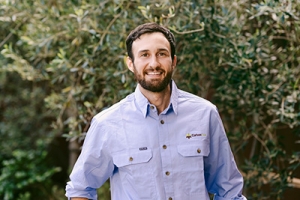
Learn More
Trained in Near Infrared Spectroscopy (NIR) via a Masters, PhD (CQUniversity), and a certificate for Fundamentals and Applications of NIR (University of Cordoba). Previously worked in fruit crop forecasting (quantity and quality) and consulting for Felix Instruments and Australia’s Mango Industry Association. Nick aims to continually test and integrate cutting edge methods to improve the SCANS systems sensor accuracy for projection of soil carbon.
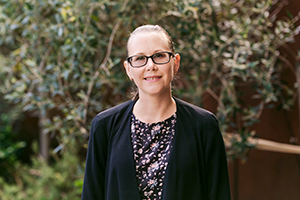
Learn More
We’re in a people business - Learn more about CarbonLink’s Stephen Stacey
In his youth Stephen Stacey was an equestrian eventing champion. Selected for Australia’s Junior team, he competed internationally and spent a year engaged in the sport in the UK in the early 1980’s. A blend of cross country, show jumping and dressage the sport of eventing is considered the triathlon of equestrian events – the ultimate test of horse and rider.
Stephen grew up with six siblings as the fourth generation on a grazing property in Beaudesert southeast Queensland. His dad Lou was a drover and shared his powerful skills of observation with the young Stephen, sowing the seeds of working with nature, rather than against it, from an early age. In the mid-eighties Lou and Judith made the move north to Richmond in search of new opportunity for their family.
You could say regenerative grazing was in their blood. Stephen’s brother Raymond attended Terry Mccosker and Stan Parson’s first ever grazing management course with RCS (Resource Consulting Services). In 2000, Stephen soon followed with the seven-day Grazing for Profit school and his dad Lou aged 70 came next. George, Stephen’s son became the third generation in the family to do the renowned course.
The school was the beginning of a radical change. “There were so many Light bulb moments,” Stephen said.
“I understood finances better, I learnt how to manage pastures and how to extend the phase 2 growing stage, improve animal production and link them all together. It more than doubled our carrying capacity and improved our profitability sevenfold.
After moving out of agriculture for seven years Stephen was keen to return. His regen grazing experience was the ideal background for advising farmers about running soil carbon projects with CarbonLink – bridging the gap between the science and on ground practices.
“A lot of people we work with are already on the regenerative practices path. They know their production systems but are not quite sure how that converts into carbon sequestration. But soil carbon and regen practices go hand in hand so once the key principles are understood they have what they need,” Stephen said.
“Carbonlink has developed terrific science-based measurement systems which minimise potential discounts due to variance in soil results in future years and maximise the farmer returns from abatement. We have mastery in that space which gives landholders bang for their buck in a carbon project.”
When Stephen goes on farm these days he’s never without a shovel. “If we are looking at country and the health of a property, we are always digging holes, looking at root systems and any sign of soil being built. With the knowledge we have from our near infrared spectrometer we now understand how the carbon can shift all the way down the 1.2 metre soil core, in 5 cm intervals.”
He finds these insights extremely valuable and his conversations with farmers have gone subterranean. “We are able to compare what grows above the ground with what grows beneath it and we are all squashing soil in our hands, sniffing it and licking it to understand what is happening. There are plenty of soils I wouldn’t put my tongue on but in places with natural systems it is different. The smell of soil is so fresh like the scent of a first rain. That’s all about biology and soil health.”
“People get excited because they start joining the dots. Especially when you see a place where they had hard orange sandy clay like a tennis court and it now has 5cm of beautiful black soil on top of it, after ten years of changed management.”
Here is Gems of rich organic soil, high in carbon. There was no black layer 10 years ago, the main tool used was good grazing management.
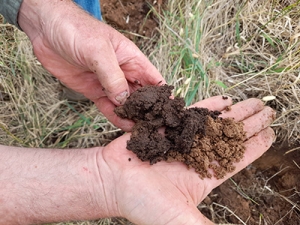
Under the soil carbon method landholders need to do something new or materially different on their soil carbon project. But according to Stephen there is quite a bit of flexibility. Farmers can change paddock sizes, improving stocking density, introduce biodiversity and cover crops, multispecies pasture, legumes or organic treatments.
Last week he visited a property in Central Queensland rehabilitating a depleted cotton property with the view to turn it into a green feedlot. “They were pulling brassicas, parsnips and turnips out of the ground half the size of a small child and this was their first attempt to convert to regenerative practices.”
This property was using skills that had been developed by Grant Sims that Vic No Till had been perfecting through their networks. They were using this knowledge as their first step to open-up the ground and let soil biology into it. “It is amazing how generous people are and the word spreads very quickly about practices that work,” Stephen said.
“Members of the Vic No Till network are developing world best practice techniques and they know they are building soil carbon despite continuous cropping. They have seen input costs drop while maintaining productivity and improving margins. A lot of the biological inputs they make themselves.”
The focus is now on feeding the soil biology and maintaining microbes while there aren’t living roots in the ground. Maintaining microbes ready for the next crop. Learning how to feed biology during fallow and keeping soil biology on a rising or level plane at least until they sow the next crop when biology starts to build again.
“We are keen to add carbon as an additional enterprise and new income stream into the cropping system. Carbonlink knows our accurate measurement can add enormous value to carbon projects.”
Stephen has had the opportunity to work with leaders in the field in regenerative grazing and is now looking forward to working with Vic No Till farmers at the leading edge of regenerative cropping as they build carbon credits and new income streams.
Stephen and ‘Guns Monte’ moving a large mob of 2000 head to a new watering point on Ranmoor, Richmond in NW QLD. A 15-paddock rotation was used to create better pasture utilization, extend the pasture growing stage and improve ground cover and soil health.
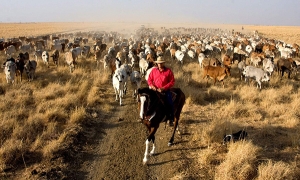
The same horse ‘Guns Monte’ at Adelaide International Horse Trials a few years later.
